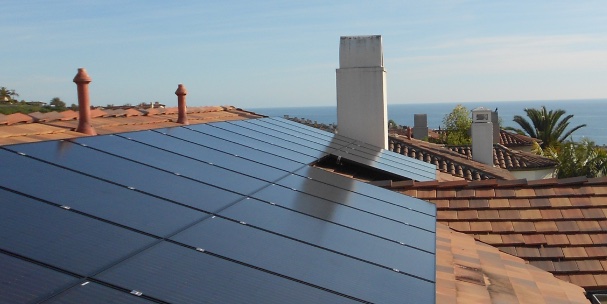
Residential solar company Sunnova Energy took the bold and unusual step yesterday of seeking regulatory approval in California to act as a utility that owns and operates community microgrids.
Microgrid developers have typically avoided being designated as utilities — in some cases fought against it — because few have the resources to take on the level of regulation applied to utilities.
However, Sunnova is tapping into a unique “microutility” designation conceived by California regulators. Microutilities would serve fewer than 2,000 customers under lightened regulation.
The proposal arrives as the state’s grid labors under extreme heat. The California Independent System Operator this week called for conservation to avert the kind of blackout the state saw in August 2020.
The grid warning comes on top of the more frequent public safety power shutoffs that Californians are experiencing as utilities try to prevent power lines from sparking wildfires.
For new neighborhoods
The Texas-based company wants to install the microgrids in partnership with real estate developers who are building new neighborhoods in California.
In a typical 500-home community, each home would act as a nanogrid, with separately metered on-site solar PV and battery energy storage, oversized so that excess energy could flow to the community or the grid. The neighborhood also would have community solar, energy storage, emergency generation and microgrid controls and software and could function as a virtual power plant.
During a grid outage, the microgrid would island from the grid and the community would rely on its on-site power. The design allows the microgrid to operate independently for a minimum of 300 hours.
About 82% of the community’s power would come from the microgrid with the remainder coming from the grid. The microgrid would cost about $16,000 to $20,000 per home, Sunnova said in the Sept. 1 filing before the California Public Utilities Commission.
Sunnova would operate the microgrids and employ software and predictive analytics to manage the assets and energy imports and exports. Households will also be equipped with platforms so that they can monitor and adjust their energy use.
The renewable energy microgrids will offer the state a range of benefits, among them increased electric reliability, advancement toward utility sustainability goals, jobs and grid services, according to the filing.
By building community microgrids California also can avoid expensive grid upgrades, Sunnova said, citing a $40 billion price estimate to underground utility distribution lines.
Microutilities would charge regulated rates
To move forward under the plan Sunnova needs to win a certificate of public convenience and necessity from the CPUC. Winning approval would give each microutility the ability to charge regulated rates, as utilities do, for its services. Sunnova envisions setting customized rates for each microgrid, given that energy supply will vary among communities.
Residential and neighborhood microgrids remain rare, but they are beginning to crop up elsewhere in the country. Emera Technologies is developing a similar neighborhood microgrid in Tampa, Florida, but under a different business model. Rather than creating its own microutility, Emera is partnering with a Florida utility on the project.
True energy democratization
Sunnova, traditionally a solar and storage company, unveiled its entry into the microgrid market at Microgrid 2022 in May.
Speaking on a panel, “Microgrids for Homes and Neighborhoods,” Davis Peden, vice president of IT and microgrids at Sunnova Energy, urged the microgrid community to get behind rules that will allow neighborhoods to microgrid, share energy and realize sustainability goals.
“To realise the benefits of true energy democratisation, guidelines need to be put in place. My ask of all of you in this room and everybody at the conference is to participate. We need guidelines that will support rolling out microgrids at scale in the residential space,” he said.
This article was originally published by Microgrid Knowledge. Reproduced here with permission


